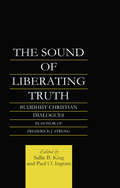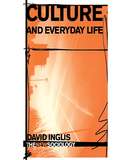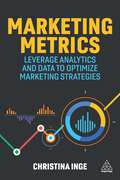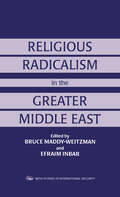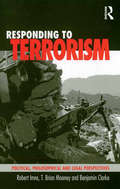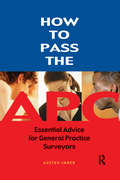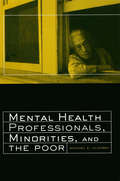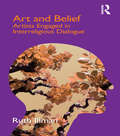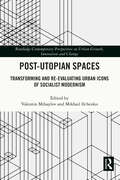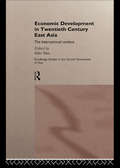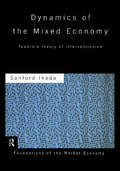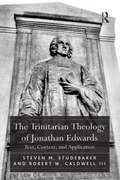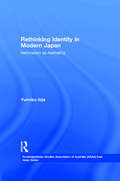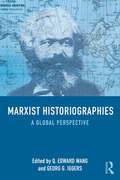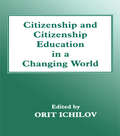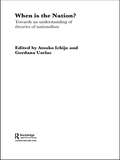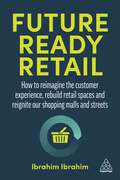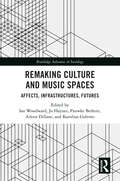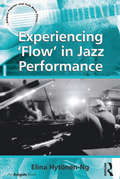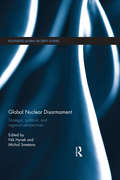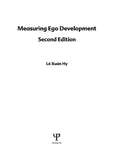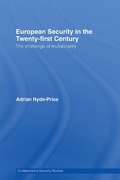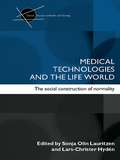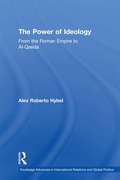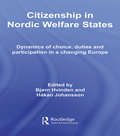Special Collections
Benetech’s Global Certified Accessible Titles
Description: Benetech’s GCA program is the first independent third-party EPUB certification to verify ebook accessibility. By creating content that is born accessible, publishers can meet the needs of all readers. Learn more: https://bornaccessible.benetech.org/
- Table View
- List View
The Sound of Liberating Truth
by Paul Ingram and Sallie B. KingOffers essays and dialogues by well-known Buddhist and Christian scholars on topics that were of primary interest to Frederick J. Streng, in whose honour the volume was created. Topics include interreligious dialogue, ultimate reality, nature and ecology, social and political issues of liberation, and ultimate transformation or liberation.
Culture and Everyday Life
by David InglisCulture is unquestionably a central topic in the contemporary social sciences. In order to understand how people think, feel, value, act and express themselves, it is necessary to examine the cultures they create, and are in turn created by. Here, David Inglis shows how the study of culture can be transformed by focusing in on how cultural forces shape, influence, structure - and occasionally disrupt - the day-to-day activities of individuals. Reconsidering different views on 'culture' - what it is, how it operates, and how it relates to other aspects of the human (and non-human) world - this new book covers key areas such as: high culture versus popular culture modern and postmodern culture globalization and culture culture and nature. Specific issues covered range from the everyday aspects of sportive play, artistic production and the mass media, to car culture and global cuisine, and students are introduced to some of the major thinkers on culture from Matthew Arnold to Bakhtin and Bourdieu. Written in a concise, student-friendly manner, theoretical arguments are illustrated with examples from film, architecture and daily life, making this an informative and indispensable introduction for those wishing to understand the complexities of culture.
Marketing Metrics
by Christina IngeStop feeling overwhelmed by data and start using it to its full potential, to create an agile and forward-looking strategy that enables customer-centric marketing, builds your brand and develops product strategies.Many brands talk about creating a marketing strategy powered by data, analytics and metrics. Yet too often they're still overwhelmed by data, or unsure of how to use it to create a flexible and future-focused strategy that doesn't just validate what's happened in the past. Marketing Metrics takes readers through all the stages of implementing a data-first strategy, from early-stage adoption to more advanced customization. Featuring examples from a range of organizations including Coca-Cola and Mercedes-Benz, it shows how to create a strategy which leverages consumer data for customer-centric marketing, establishes the ROI of channels and campaigns, strengthens brands and creates data-driven product strategies.Covering the range of new global laws that impact consumer privacy and data collection and usage, Marketing Metrics shows how to use data in a non-invasive, secure and ethical way. Also showing how to communicate critical data to the right stakeholders and the skills of the data-savvy marketer, this is a clear and jargon-free guide to creating a future-focused and data-powered marketing strategy.
Religious Radicalism in the Greater Middle East
by Bruce Maddy-Weitzman and Efraim InbarThis collection offers a political analysis of religious radicalism in the Greater Middle East - comprising the Middle East, Central Asia and North Africa. The contributors present various conceptual perspectives including international relations, Middle East studies and political sociology.
Responding to Terrorism
by Robert Imre and T. Brian MooneyTerrorism and political violence as a field is growing and expanding. This volume provides a cross-disciplinary analysis - political, philosophical and legal - in a single text and will appeal to readers interested in studying this phenomenon from all perspectives. The volume covers the full spectrum of issues, including torture, terrorism causes and cures, legal issues, globalization and counter-terrorism. The authors bring their individual specialities to the fore in a concise and easy to follow format. Comprehensive and well informed, Responding to Terrorism will appeal to a variety of disciplines including sociology, politics, security studies, philosophy, international law and religious studies. The originality of the volume makes it a valuable addition to any college or university library and classroom.
How to pass the APC
by Austen ImberGraduates undertaking the RICS Assessment of Professional Competence (APC) often find that, in addition to the general information provided by the RICS, guidance is needed on specific areas of their work as general practice surveyors. How to Pass the APC: Essential Advice for General Practice Surveyors has been built around the needs of general practice surveyors, and guides you through the APC process in line with your own competencies – including valuation, marketing, landlord and tenant, estate management, rating, and planning and development work, together with more specialist areas. The author highlights the essentials, showing you how to approach the presentation and interview, providing a bank of examples of real APC questions, together with illustrative responses to demonstrate how the interview process works. Accessible and easy to use, this book gives you comprehensive coverage of the fundamental elements and is a must read for anyone taking the APC.
Mental Health Professionals, Minorities and the Poor
by Michael E. IllovskyMental Health Professionals, Minorities, and the Poor provides mental health professionals with information essential to the accurate assessment and effective treatment of diver populations.
Art and Belief
by Ruth Illman'Art and Belief' explores communication between faiths through an examination of contemporary artistic practice. The book discusses how a range of artists formulate their worldview and what motivates them to engage in dialogue. These artists are engaged in a wide range of artistic forms and practice and come to dialogue from diverse religious positions. The aim of the book is to question the assumptions of interreligious dialogue as a largely intellectual exercise in defining the religious "other" and to explore dialogue as a manifestation of interpersonal ethics.
Post-Utopian Spaces
by Valentin Mihaylov and Mikhail IlchenkoFeaturing up-to-date and insightful analyses and comparative case studies from a plethora of countries, this timely book explores ‘ideal’ socialist cities and their transformation under new socio-economic and political conditions after the fall of communism. With contributions from leading scholars in the field, this book prioritises objective scientific knowledge and presents expert rethinking of the historical experience of urban planning in the former socialist countries of Eurasia. It draws on carefully selected examples of iconic cities of socialist modernism, from the post-Soviet space, Central Europe, and the Balkans. The book explores the ongoing transformation of these cities: from uniformed urban environment to chaotic post-modernist planning, from industrialisation to touristification, from deideologisation to making new and still highly contested heritage. Written in an accessible and engaging style, this book will be of interest to students and scholars in urban studies, human geography, sociology, social anthropology, spatial planning, and architectural practice.
Economic Development in Twentieth-Century East Asia
by Aiko IkeoThis collection supplies fascinating insights into aspects of East Asian economic development. It will interest scholars in a variety of related fields and provoke further research and debate.
Dynamics of the Mixed Economy
by Sanford IkedaDynamics of the Mixed Economy applies the insights of modern Austrian political economy to examine economic policy in mixed economies. It compares and contrasts standard approaches to the growth of the state (including public choice) with that of modern Austrian political economy; examines in detail the nature and operation of the interventionist process in the context of nationalization, regulation and the welfare state; analyzes conditions that produce instability under laissez-faire capitalism; argues that the interventionist process is a 'spontaneous order'; and offers several 'pattern predictions' regarding the character and behaviour of really existing economies.
The Trinitarian Theology of Jonathan Edwards
by Steven M. Studebaker and Robert W. IiiWhile Jonathan Edwards scholars have increasingly recognized the central role that the Trinity played in his thought, no work brings together Edwards' central texts on the Trinity and interprets and applies them to contemporary theological issues. This book reveals how the doctrine of the Trinity transformed Edwards' ministry and how the Trinity can inform current evangelical thought, life, and ministry. Key primary texts, interpretation, and application of Edwards' trinitarian theology are all presented here. Part one features Edwards' chief trinitarian writings and provides an in-depth analysis on his doctrine. Part two sets Edwards' trinitarianism in historical context. Part three demonstrates how Edwards employed the Trinity in his sermons, in spiritual formation, and in other areas of doctrine.
Rethinking Identity in Modern Japan
by Yumiko IidaThis volume is a major reconsideration of Japanese late modernity and national hegemony which examines the creative and academic works of a number of influential Japanese thinkers. The author situates the process of Japanese knowledge production in the interface between the immediate historical and the wider socio-economic and politico-cultural contexts accompanying the Japanese post-war experience of modernity.This book will be of great value to anyone interested in the history of contemporary Japanese culture and society.
Marxist Historiographies
by Georg G. Iggers and Q. Edward WangMarxist Historiographies is the first book to examine the ebb and flow of Marxist historiography from a global and cross-cultural perspective. Since the eighteenth century, few schools of historical thought have exerted a more lasting impact than Marxism, and this impact extends far beyond the Western world within which it is most commonly analysed. Edited by two highly respected authors in the field, this book deals with the effect of Marxism on historical writings not only in parts of Europe, where it originated, but also in countries and regions in Africa, Asia, North and South America and the Middle East. Rather than presenting the chapters geographically, it is structured with respect to how Marxist influence was shown in the works of historians in a particular area. This title takes a dual approach to the subject; some chapters are national in scope, addressing the Marxist impact on historical practices within a country, whereas others deal with the varied expressions of Marxist historiography throughout a wider region. Taking a truly global perspective on this topic, Marxist Historiographies demonstrates clearly the breadth and depth of Marxism’s influence in historical writing throughout the world and is essential reading for all students of historiography.
Citizenship and Citizenship Education in a Changing World
by Orit IchilovPolitical, economic, technological and cultural changes have taken place all over the globe, changes which have transformed the meanings of citizenship and citizenship education. This volume represents an effort to analyze the implications of these changes.
When is the Nation?
by Atsuko Ichijo and Gordana UzelacThis new collection of key authors on nationalism presents the latest thinking on this fundamental aspect of Politics, International Relations and Sociology. John Breuilly, Walker Connor, Steven Grosby, Eric Hobsbawm, Anthony D Smith and Pierre van den Berghe comprehensively explain and address the key contemporary question in nationalism studies of 'when is the nation?' , or what point in a nation's history is it born, with authority and freshness. Our world is still deeply imbedded in the language and practice of nations and nationalism and they remain central parts in understanding human society. This comparison and contrast of the main approaches reveals their strengths and weaknesses. This new text: * introduces the main schools of thought with clarity and concision * tackles the most pertinent questions in nationalism * delivers both theoretical and empirical perspectives * uses an innovative new interactive debate format with questions and answers * presents key case studies bringing theory to life The inclusion of case studies gives the reader fresh insight into specific nations and national groups, including The United States, Greece, England and Fiji. The accessible debate format puts main theories and thinkers to the test, enabling the reader to interact with the issues directly. This unique volume is an invaluable resource for students and scholars of nationalism, ethnicity and global conflict.
Future-Ready Retail
by Ibrahim IbrahimTraditional shops are facing challenging and unprecedented times. Future-Ready Retail explains how changing consumer needs, the impact of digital and the issues around health, wellness and distancing have transformed retail and provides compelling solutions to help reimagine the high street and out-of-town malls. Conventional high streets, shopping arcades and retail malls throughout the world no longer attract the crowds needed to sustain them as successful commercial spaces. Suffering from the effects of online shopping, changing consumer attitudes and expectations, and the legacy impact of social distancing, there's a sense of urgency and the need to address the decline in physical retail. Future-Ready Retail provides in-depth analysis of how consumers, health, data and new technologies will continue irreversibly to shake up physical shops and permanently shape the future of traditional retail. Arguing that to be future-ready, retail needs to be driven by people and places, not solely real estate, the book explains how brands can develop strategies to create shops whose main purpose is to recruit, retain and delight customers. Featuring case studies from successful global brand, retail futurist and designer Ibrahim Ibrahim identifies key retail-cultural trends, shows why it's important to make retail space physically smarter and how to use touch points such as social, website and apps alongside the physical space, to achieve a seamless, enjoyable and profitable retail experience.
Remaking Culture and Music Spaces
by Ian Woodward, Jo Haynes, Pauwke Berkers, Aileen Dillane, and Karolina GolemoThis collection analyses the remaking of culture and music spaces during the ongoing COVID-19 pandemic. Its central focus is how cultural producers negotiated radically disrupted and uncertain conditions by creating, designing, and curating new objects and events, and through making alternative combinations of practices and spaces. By examining contexts and practices of remaking culture and music, it goes beyond being a chronicle of how the pandemic disrupted cultural life and livelihoods. The book also raises crucial questions about the forms and dynamics of post-pandemic spaces of culture and music. Main themes include the affective and embodied dimensions that shape the experience, organisation, and representation of cultural and musical activity; the restructuring of industries and practices of work and cultural production; the transformation of spaces of cultural expression and community; and the uncertainty and resilience of future culture and music. This collection will be instrumental for researchers, practitioners, and students studying the spatial, material, and affective dimensions of cultural production in the fields of cultural sociology, cultural and creative industries research, festival and event studies, and music studies. Its interdisciplinary nature makes it beneficial reading for anyone interested in what has happened to culture and music during the global pandemic and beyond.
Experiencing 'Flow' in Jazz Performance
by Elina Hytonen-NgThe term 'flow' refers to experiences where the musician moves into a consciousness in which time seems to be suspended and perception of reality is blurred by unconscious forces. An essential part of the jazz tradition, which often serves as the foundation of the musician's identity, flow is recognised within the greater jazz community as a critical factor in accomplished musicianship. Flow as a concept is so deeply embedded in the scene that these experiences are not generally discussed. It contributes to the musicians' work motivation, providing a vital level of satisfaction and accomplishment. The power of the experience, consciously or unconsciously, has given rise to the creation of heroic images, in which jazz musicians are seen as being bold, yet vulnerable, strong and masculine, but still capable of expressing emotions. In this discourse, musicians are pictured as people constantly putting themselves on the line, exposing themselves and their hearts to one another as well as to the audience. Heroic profiles are richly constructed within the jazz scene, and their incorporation into narratives of flow suggests that such images are inseparable from jazz. It is thus unclear how far the musicians are simply reporting personal experience as opposed to unconsciously perpetuating a profoundly internalised mythology. Drawing on eighteen interviews conducted with professional jazz musicians from around the world, Elina Hytönen-Ng examines the fundamentals of the phenomenon of flow in jazz that has led to this genre's popularity. Furthermore, she draws on how flow experiences are viewed and constructed by jazz musicians, the meanings they attach to it, and the quality of music that it inspires.
Global Nuclear Disarmament
by Nik Hynek and Michal SmetanaThis book examines the issue of nuclear disarmament in different strategic, political, and regional contexts. This volume seeks to provide a rich theoretical and practical insight to one of the major topics in the field of international security: global abolishment of nuclear weapons. Renewed calls for a nuclear weapons-free world have sparked a wide academic debate on both the attainability of such goal and the steps that should be taken. Comparably less attention, however, has been paid to theoretically informed considerations of the consequences of nuclear abolition. Comprising essays from leading scholars and experts within the field, this collection discusses the fundamental theoretical and conceptual foundations of nuclear disarmament and subsequently tries to assess its hypothetical impact in global and regional contexts. The varied methodological approach of the contributors aims to advance a multi-theoretical and multi-perspectival view of the issue. The book is organized in three main sections: ‘Strategic Perspectives’, dealing with the specific constraints and facilitators for the states to achieve their core objectives; ‘Political Perspectives’, with the focus on the power of norms, belief-systems and ideas; and ‘Regional Perspectives’, with the analyses of seven regional and/or state-specific nuclear contexts. As a whole, the volume provides a detailed, complex overview of the risks and opportunities that are embedded in the vision of a nuclear weapon-free world. This book will be of great interest to students of nuclear proliferation, arms control, war and conflict studies, international relations and security studies.
Measuring Ego Development
by Le Xuan Hy and Jane LoevingerThe topic of ego development developed when psychoanalysis did not fulfill all the initial hopes during its early period of prominence. Clinicians--psychiatrists, psychologists, social workers, and counselors--realized that they needed to know more than their patients' or clients' psychopathology or normalcy and their psychosexual behavior and drives. The method for scoring sentence completions presented in this manual was originally developed for a study of women and adolescent girls. By the time it was first published in 1970, however, the method had already come into use in studies of men and boys. Since then, it has been used with widely varying samples, and the test has been translated into several other languages. This wide adoption testifies to the need for such a test. The present version of the manual incorporates three major improvements: * it is based on data from, and is intended for use with, both males and females, * its format is easier to use, and * the examples cited reflect current public attitudes. The format of the scoring manual for the Sentence Completion Test (SCT) is radically changed from the original, making it easier to find the correct rating for a response. The rating scale itself is kept simple and the basic concept of ego development is the same. A tutorial is included to assist in calculating the Total Protocol Ratings (TPRs). ALTERNATIVE BLURB!!! The Washington University Sentence Completion Test, which was developed by Jane Loevinger, is a free-response, semi-projective instrument for the assessment of ego development. The first manual for administering and scoring the test was published in 1970. In addition to its widespread use in the United States, it has also been adopted for use in Canada, the United Kingdom, France, Germany, Italy, the Netherlands, Japan, India, and South Africa. The WUSCT has been used for research in the fields of adolescent personality development, moral development, infancy and parenting, family and gender studies, multiculturalism, religion, psychopathology and psychotherapy, vocational studies, and social and organizational psychology. It is most frequently used by researchers and practitioners in psychology, counseling, social work, and education. This book represents a revised edition of the WUSCT scoring manual, including all items in the 1981 forms, which were revised for use with both men and women. The content reflects current social attitudes, which have changed on some topics since the publication of the original 1970 manual. Although there have been minor changes in terminology, the conception of ego development is unchanged, and the stages of the construct are essentially the same. The format of the scoring manual, however, has been radically changed for ease of use in rating responses. (The rating scale itself, which is the same for all items, is kept simple.) A tutorial is included to assist in calculating the Total Protocol Ratings.
European Security in the Twenty-First Century
by Adrian Hyde-PriceCombining a sophisticated theoretical analysis with detailed empirical case-studies, this book provides an original view of the challenges and threats to a stable peace order in Europe. The end of Cold War bipolarity has transformed Europe. Using structural realist theory, Adrian Hyde-Price analyzes the new security agenda confronting Europe in the twenty-first century. Europe, he argues, is not ‘primed for peace’ as mainstream thinking suggests, rather, it faces new security threats and the challenge of multipolarity. This critical and original volume looks at European security after the Iraq War, the failure of the EU constitution and the change of government in Germany. Reflecting on the inherently competitive and tragic nature of international politics, it concludes that realism provides the only firm foundations for an ethical foreign and security policy. European Security in the Twenty-First Century will appeal to students and scholars of international relations, European politics and security studies.
Medical Technologies and the Life World
by Lars-Christer Hydén and Sonja Olin LauritzenAlthough the use of new health technologies in healthcare and medicine is generally seen as beneficial, there has been little analysis of the impact of such technologies on people’s lives and understandings of health and illness. This ground-breaking book explores how new technologies not only provide hope for cure and well-being, but also introduce new ethical dilemmas and raise questions about the 'natural' body. Focusing on the ways new health technologies intervene into our lives and affect our ideas about normalcy, the body and identity, Medical Technologies and the Life World explores: how new health technologies are understood by lay people and patients how the outcomes of these technologies are communicated in various clinical settings how these technologies can alter our notions of health and illness and create ‘new illness’. Written by authors with differing backgrounds in phenomenology, social psychology, social anthropology, communication studies and the nursing sciences, this sensational text is essential reading for students and academics of medical sociology, health and allied studies, and anyone with an interest in new health technologies.
The Power of Ideology
by Alex Roberto HybelSince the Roman Empire, leaders have used ideology to organize the masses and instil amongst them a common consciousness, and equally to conquer, assimilate, or repel alternative ideologies. Ideology has been used to help create, safeguard, expand, or tear down political communities, states, empires, and regional or world systems. This book explores the multiple effects that competing ideologies have had on the world system for the past 1,700 years: the author examines the nature and content of Christianity, Islam, Confucianism, Protestantism, secularism, balance-of-power doctrine, nationalism, imperialism, anti-imperialist nationalism, liberalism, communism, fascism, Nazism, ethno-nationalism, and transnational radical Islamism; alongside the effects their originators sought to craft and the consequences they generated. This book argues that for centuries world actors have aspired to propagate through the world arena a structure of meaning that reflected their own system of beliefs, values and ideas: this would effectively promote and protect their material interests, and - believing their system to be superior to all others – they felt morally obliged to spread it. Radical transnational Islamism, Hybel argues, is driven by the same set of goals. This book will be of interest to students and scholars of international politics, international relations theory, history and political philosophy.
Citizenship in Nordic Welfare States
by Håkan Johansson and Bjørn HvindenThis book offers an innovative analysis of the ways in which the relationship between citizens and welfare states - social citizenship - becomes more dynamic and multifaceted as a result of Europeanization and individualization. Written by interdisciplinary contributors from politics, sociology, law and philosophy, it examines the transformation of social citizenship through a series of illuminating case studies, comparing Nordic countries and other European nations. Dealing with the following areas of national and European welfare policy, legislation and practice: activation – reforms linking income maintenance and employment promotion scope for participation of marginal groups in deliberation and decision-making impact of human rights legislation for welfare and legal protection against discrimination and social barriers to equal market participation coordination of social security systems to facilitate cross-border mobility in Europe pension reform – efforts to make pension systems sustainable. Citizenship in Nordic Welfare States will be of interest to students and researchers of social policy, comparative welfare, social law, political science, sociology and European studies.
